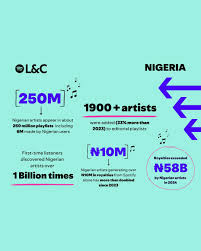The government is set to review the controversial practice of “dynamic pricing” after a backlash from Oasis fans who faced “vastly inflated” ticket prices for the band’s reunion tour. This review will be part of a broader consultation on ticket resale websites, scheduled to begin in the autumn.
The move follows widespread criticism from fans who found themselves paying significantly higher prices as they waited in long online queues. Culture Secretary Lisa Nandy expressed her desire to end “rip-off resales” and ensure that tickets are sold at fair prices, highlighting the importance of transparency in the ticketing process.
Dynamic pricing, which allows prices to rise in response to demand, has been a major point of contention. Tickets for the Oasis tour, sold through Ticketmaster, surged from an initial price of £135 to more than £350 as demand grew.
Although dynamic pricing is legal under consumer protection laws, many fans, including prominent figures like House of Commons leader Lucy Powell, were dismayed by the unexpected price hikes. Powell, who ended up paying more than double the original ticket price, acknowledged that while she didn’t favor surge pricing, it reflects market operations.
Economist Schellion Horn from Grant Thornton explained that dynamic pricing adjusts prices based on supply and demand, suggesting that the initial ticket prices may have been set too low given the high demand.
Horn noted that people were willing to pay higher prices, indicating that the market could bear such costs. However, the lack of transparency around the use of dynamic pricing left many fans feeling blindsided, as they were unaware that prices could change so dramatically during the purchasing process.
The application of dynamic pricing is not new, with similar models used by companies like Uber and airlines. However, this may have been the first time UK concertgoers encountered such a system for ticket sales, leading to significant frustration.
Ticketmaster defended its role by stating that it does not set prices, which are determined by the event organizer based on market value. Jonathan Brown, CEO of the Society of Ticket Agents and Retailers, commended ticketing websites for managing the high demand but acknowledged that prices were likely set by the band.
In response to the growing discontent, Culture Secretary Lisa Nandy emphasized the need for collaboration between the government, artists, the industry, and fans to create a fairer ticketing system.
The goal is to eliminate ticket touts and prevent inflated resale prices, ensuring that tickets are accessible at fair rates.
This aligns with previous statements by Sir Keir Starmer, who, before becoming prime minister, supported capping resale prices and limiting the number of tickets that could be resold.
The ongoing debate over dynamic pricing reflects broader concerns about the accessibility of cultural events and the fairness of the ticketing market.
As the government prepares to review these practices, there is hope among fans and consumer advocates that new regulations will lead to a more transparent and equitable system, reducing the frustration and disappointment experienced by those looking to attend major events like the Oasis reunion tour.










